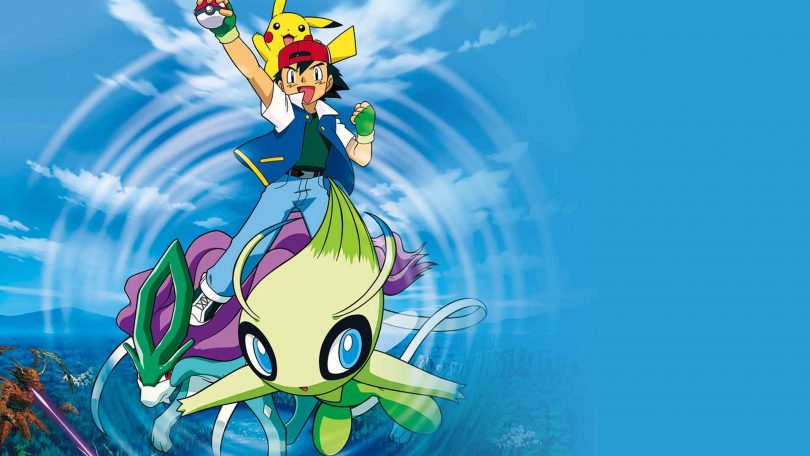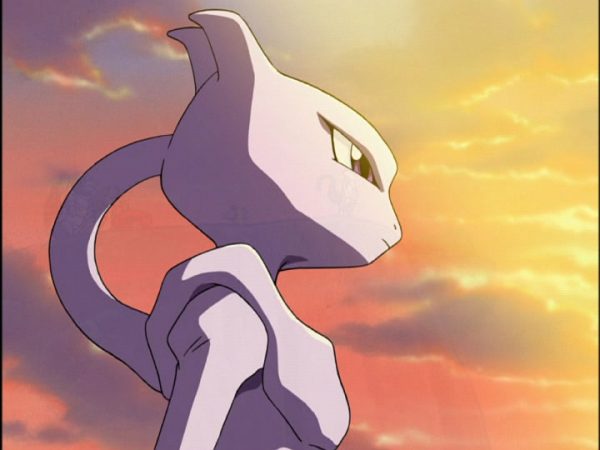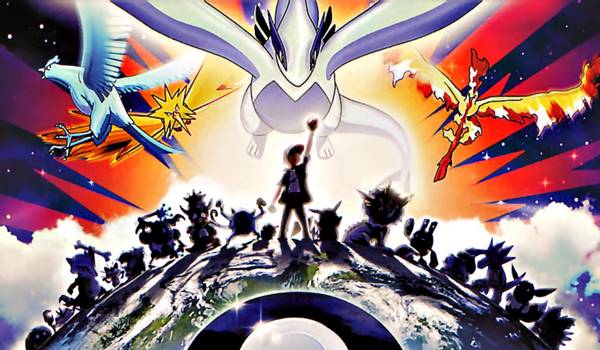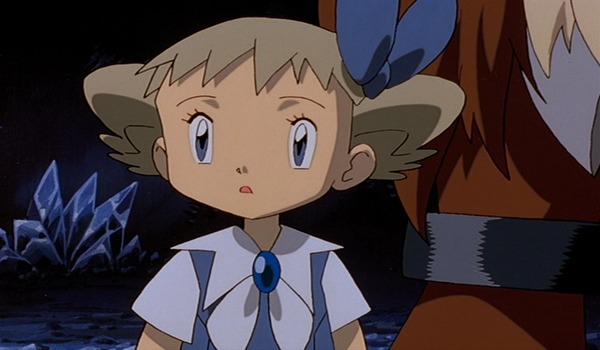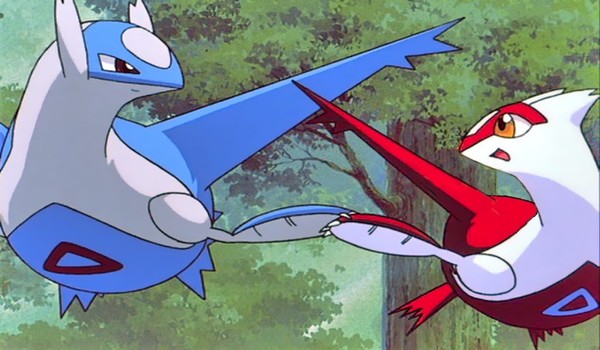Hey, that trailer for Detective Pikachu looks pretty cool. A live action, Roger Rabbit-style take on the Pokémon franchise, with Ryan Reynolds voicing Pikachu, is a fantastic idea. What makes it even more of a draw is that it takes a different direction from all the other Pokémon movies. The iconic anime, which has been running for over twenty years, has officially twenty-two films with a few extra ones too. Detective Pikachu could potentially break the mould on the formula the games, TV show, and movies have been following for years. But, our time with Pikapool is still a few months away. Until then, we’re going to take a look back on every single Pokémon film released so far. Similar to what we did with the Godzilla filmography, we’ll review each film during the generation they were released in.
Back in 1999, Pokémon ruled the world. It was a genius marketing move to release the video games, the trading cards, and the anime all at the same time. The original series (the “Indigo League” arc) is considered the golden age of Pokémon. In the first part of our Pokémon movie marathon, we’ll look at the movies covering the Kanto, the Orange Islands, and the Johto eras of the anime (i.e. when Ash, Misty, and Brock were together).
Pokémon: The First Movie
We have talked about Pokémon the First Movie repeatedly on the site. Its intricate story of identity, purpose, misuse of science, and the meaning of life, is hampered by 4Kids Entertainment’s shaky dub. Mewtwo, a genetically cloned Pokémon, searches for meaning in his confusing existence. Holding a grudge against humanity for his mistreatment, Mewtwo vows to bring about a new world order with an army of superpowered cloned Pokémon. Ash, Pikachu, Misty, and Brock are invited to Mewtwo’s island under the pretence they will meet the world’s greatest Pokémon Master. Also on hand is the adorable Mew, Mewtwo’s counterpart, who opposes his violent ways.
There is plenty to discuss about the movie’s subtext, tone, and themes, especially Mewtwo’s characterization as a bitterly resentful Pokémon. He wants to prove the superiority and worth of his kind, but his only influence and experience comes from misguided humans. There are some very poignant moments, with inspiring messages about not being defined by your origins, etc. Unfortunately, there is that forced anti-fighting message inserted by 4Kids. Five minutes are spent hammering this lecture, and then, at the end of the movie, the characters have their memories erased of it. If they aren’t going to remember it, why should we?
Mewtwo Returns
The direct sequel to the first film, Mewtwo Returns is technically an extended TV episode, but was released on VHS as an official film. Mewtwo and his clones live in an isolated mountain valley away from humans. Mewtwo has gone from trying to prove to his superiority, to becoming brooding and angsty about whether or not he deserves to exist. The only trouble is we did not see the events that led to this change of philosophy, so his angst feels out of place. Still, the film does take its time to explore more themes of integration and social acceptance. Mewtwo’s creator and Team Rocket’s boss, Giovanni, shows up to enslave the Pokémon, and it is up to Ash and co. to save the day. Giovanni is great fun, and the third act’s climax is certainly memorable. Unfortunately, the film has a lot of dumb moments. I mean, who locks a load of powerful Pokémon in a prison cell? And whoever added in those baby Nidoqueen should play the video games a little better!
Pokémon 2000
My personal favourite of the Pokémon catalogue, Pokémon 2000 is a fun, action-packed disaster film that could be called an epic. It terms of spectacle, it delivers an exciting, cataclysmic story, even if its themes are a little vexing. An eccentric Pokémon collector mistakes an ancient legend for a prophecy, capturing Moltres, Zapdos, and Articuno in order to tame Lugia, the alleged “Beast of the Sea”. Consequently, the world’s climate goes out of whack. Only you can save the planet, kids! Ash is chosen to play out the aforementioned legend as per Shamouti Island’s annual festival. But, he is soon caught in the rising danger of bad weather, grumpy elemental birds, and a fetch quest to quell the titans.
Eventually, it is revealed Ash is actually is the chosen one meant to save the world. Give Ash some credit, he actually freaks out about it, terrified of having such responsibility. Lugia is rather majestic, but yacks on about the power of one (which is the film’s subtitle), which never really comes into play. Despite mixed messages and the convenience of Ash being the destined hero, Pokémon 2000 is a blast. The animation is dazzling, and the music, especially the ocarina-based theme song, is pure bliss to listen to. And definitely Team Rocket’s finest hour!
Pokémon 3: Spell of the Unknown
Pokémon 3: Spell of the Unown is a movie that feels like it could have its own identity outside of the Pokémon brand. The story revolves around a lonely girl named Molly Hale, whose parents disappear in connection to the mystical alphabet soup Pokémon, the Unown. Molly’s tears summon the Unown, who tap into her dreams, transforming her home and the town of Greenfield into a crystalline nightmare. She receives a dedicated guardian/parental substitute, Entei, stylised after her father. In other words, the Unown have brought a little girl’s PTSD to life.
Ash becomes involved when his mother, Delia, is kidnapped by Entei to act as a substitute mother for Molly. Ash and his friends traverse Molly’s dream house to rescue Delia, with the Unown constantly channelling Molly’s wishes to the environment. Molly and Entei make for wonderful anti-heroes; one driven by childish need, and the other, a magically devoted watchdog created to protect Molly and fulfil her desires, no matter how amoral they may be. Even the Unown, depicted in the games as frankly useless Pokedex filler, are reimagined as Lovecraftian monsters, trying to perform an misguided act of charity.
The stakes are high, realistic, and even cleverly foreshadowed, letting Ash be at his best without relying on the chosen one trope. The battles are fantastic, the perfect example of what Pokémon brawls can be: fast-paced and exciting. Misty and Molly’s underwater ballet, and Entei vs. Charizard are both highlights of the movie. A superbly made movie, even for the Pokémon brand.
Pokémon 4Ever
The fourth film has all the parts to be something special, but just not the knack to do it. It is like watching a homage to Studio Ghibli, with a emphasis on nature, forests, flying machines, pacifism, and love. A young boy named Sammy is thrown forty years into the future, trying to save the time-travelling Celebi from hunters. He meets Ash and friends, teaming up with them to save Celebi. They are chased by the Iron Masked Marauder, a generic, unconvincing villain. The Marauder uses “Dark Balls” to brainwash Pokémon and somehow boost their power tenfold.
The film does have a lot of good parts about it, but doesn’t quite come together. Celebi is undeniably irritating, and is more enjoyable when it is either quiet or brainwashed. The Marauder is a total joke, blabbing on about how he’ll use Celebi to take over the world. But, when he catches it, all he does is use Celebi’s powers to create a giant twig monster. You have a time travelling pixie, and never once consider using that power as a tool for greater purpose. Fellow legendary Suicune also shows up, mostly portrayed in horrendous 3D cel-shaded animation. Still, the film has the cool, if brief, concept of steampunk Pokéballs, and the ending’s deus ex machina is pretty wondrous. Additionally, a last minute plot twist helps flesh out a long-standing supporting character.
Pokémon Heroes
The final film of the original generation is another personal favourite, but I won’t pretend Pokémon Heroes doesn’t have a headache-inducing plot. The setting is the Venetian-inspired city of Altomare, beautifully capturing Italy’s famous canal city. Ash, Misty, and Brock are touring the place and learn of the dragon guardians, Latias and Latios. Ash unintentionally is drawn into the siblings’ world after saving Latias from the thieves Annie and Oakley. The duo wish to catch the dragons to power Altomare’s ancient defensive weapon, created in case the city was attacked.
In the backstory, Altomare was tormented by an evil Pokémon trainer with a Kabutops and Aerodactyl, til the original Latios drowned them. He then died, his lifeforce becoming the Soul Dew, which keeps the city’s water levels balanced. The citizens then built the Defence Mechanism of Altomare in case the city was attacked again, which it never was. So why build it? Annie and Oakley steal the Soul Dew and the second Latios to control the D.M.A., which develops new superpowers as the plot demands. The machine can resurrect the fossilised Kabutops and Aerodactyl and use them as weapons! Who came up with that idea? And if the machine is stopped, then all the water recedes from the city and comes as a tsunami to destroy Altomare! See what I meant by a headache of a plot?
Which of these Pokémon films is your favourite? Looking forward to Detective Pikachu? Leave a comment below, or on our Twitter or Facebook feeds.

